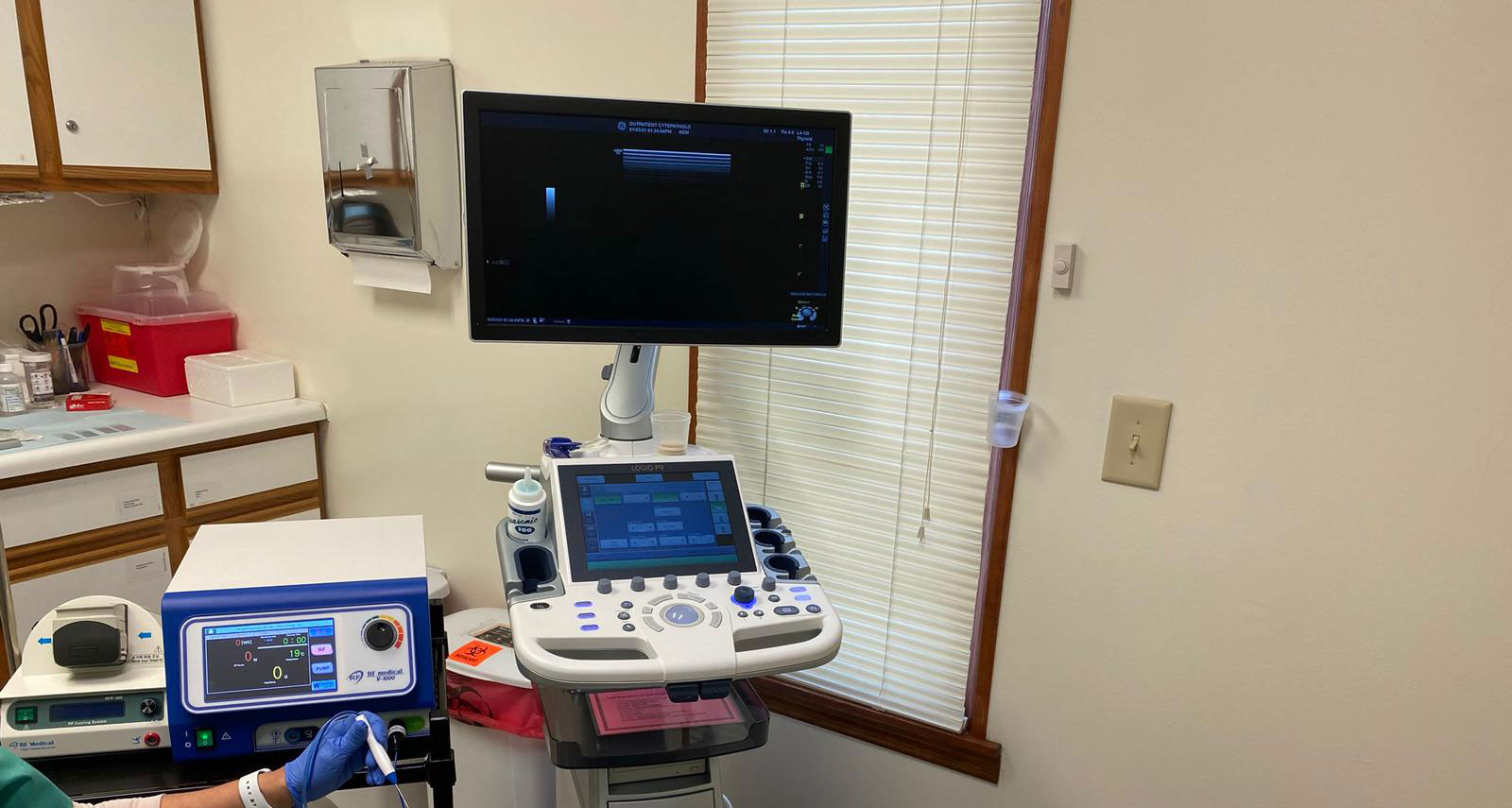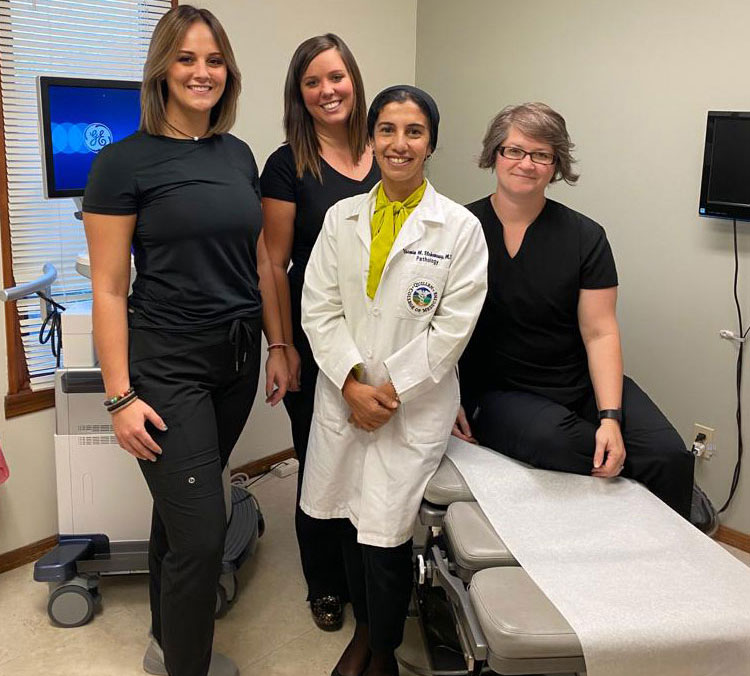RFA Procedure:
Thyroid Radiofrequency Ablation (RFA)
Radiofrequency ablation (RFA) is the latest non-surgical alternative treatment for benign thyroid nodules with minimal side effects and complications. As a result of this procedure, 50-80% of the nodule size will shrink over the course of 6-12 months. It can preserve thyroid functions and avoid the need for thyroid replacement medications.
Radiofrequency (RFA) thermal ablation technique has been successfully used for treatment of cancer nodules in the liver, lung, kidney, and bone.
What is thyroid radiofrequency ablation (RFA)?
What is radiofrequency ablation procedure?
What can be expected during the radiofrequency ablation procedure?
- You are able to breathe and talk the entire time. You will be able to converse with the doctor during the procedure.
- You’ll change your clothes into disposable gowns. No jewelry, body piercing, or metalware can be worn.
- Two grounding pads will be attached to the anterior thighs. Shaving of hair on the thighs may be necessary to properly place the grounding pads.
- Your neck will be cleaned with a skin antiseptic. Then under sterile conditions marks will be placed on your skin to demarcate parts of the nodule. Your head will rest on a small cushion and your eyes will be covered with a mask.
- Your heart rate, blood pressure, and voice are monitored during the entire RFA.
- First, your doctor will place a local anesthetic under the skin in the anterior /superficial part of the neck and around the thyroid gland.
- First, your doctor will place a local anesthetic under the skin in the front of the neck and surrounding the thyroid gland.
- Second, using the same entry hole on the neck, a thin probe will pass into your neck, targeting your thyroid nodule. The RFA will start by ablating the deeper and posterior portion of your nodule. It will then proceed to superficial and anterior portions of your nodule.
- A “popping” sound will be heard during the RFA as the tissue is sequentially and successfully being ablated.
In-Office Post RFA Care:
- After your ablation, an ice pack will be placed on your neck. You will be monitored for approximately 30 minutes and will then be discharged.
- You will be given over-the-counter medication such as acetaminophen (Tylenol) for inflammation after RFA.
The day after the RFA, your neck will be mildly sore but you will be able to resume all your normal activities. You will be advised to refrain from extra-strenuous activities for 48 hours if possible.
Who can perform the RFA procedure?
Dr. Elshenawy has done more than 10,000 thyroid and neck interventional procedures and she performs them daily in her practice. She is a very experienced interventional cytopathologist with a vast knowledge of thyroid pathology and its surroundings neck anatomy. RFA is a safe procedure when it is performed by highly experienced interventional providers who have the experience and advanced training required to perform it safely to achieve the best results.
What is the effectiveness of radiofrequency ablation treatment compared to surgery ?
Thyroid Radiofrequency Ablation is an interventional technique that eliminates the need for thyroid surgery. The whole RFA procedure is done through a small puncture into your neck, so you will not have postoperative scar or sutures. It is performed under local anesthesia so you can avoid all complications related to general anesthesia.
- No hospitalization
- No general anesthesia
- Short recovery time; you can resume your normal activity the day after your RFA.
- No lifetime thyroid hormone medications required after the RFA procedure
- Cost-effective
- No scarring
- Shrink thyroid nodules
- Preserve thyroid function
- A non-surgical alternative to thyroidectomy
What are the possible radiofrequency ablation side effects?
- Temporary hoarseness
- Minor skin bruise
- Burn at puncture site
- Minimal bleeding
- Nodule rupture
- Thyrotoxicosis
- Hypothyroidism
- Fever
- Wound infection
Am I a candidate for thyroid RFA?
1- Radiofrequency ablation treatment is a non-surgical alternative for benign thyroid nodules treatment when the nodule is:
- Large and/or growing rapidly
- Causing cosmetic concern or unsightly neck lump
- Causing neck compression symptoms such as hoarseness of voice, difficulty swallowing or breathing
- Causing anxiety due to its presence
- A hot or functioning nodule such as an AFTN (autonomously functioning thyroid nodule)
2- Nodular autoimmune thyroid disorder that causes hyperthyroidism (overactive thyroid nodule ) like Hyperfunctioning Goiter and Graves’ disease or hypothyroidism (underactive thyroid nodule ) such as Hashimoto thyroiditis.
3- If you are not a surgical candidate (high risk) or prefer nonsurgical intervention in order to preserve your thyroid function
4- Also, selected patients with thyroid cancer can benefit if the cancer is:
- Inoperable
- Small /early
- Metastatic to lymph nodes
5- In some patients with parathyroid gland enlargement such as adenoma or cyst. If the patient prefers non surgical intervention or their nodule is inoperable , RFA can be the only therapeutic method to help these patients.
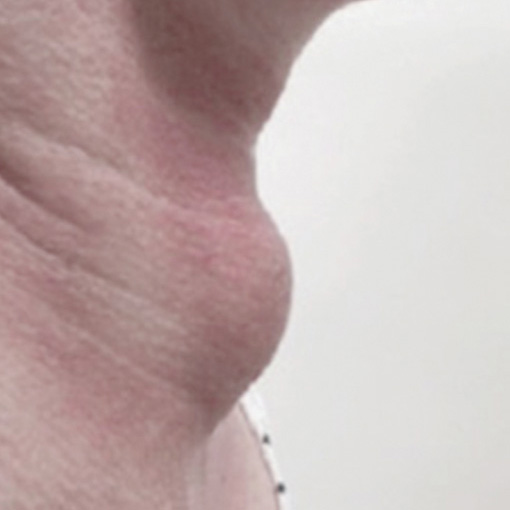
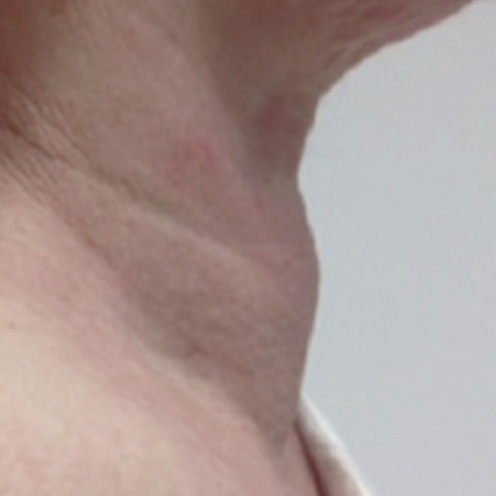
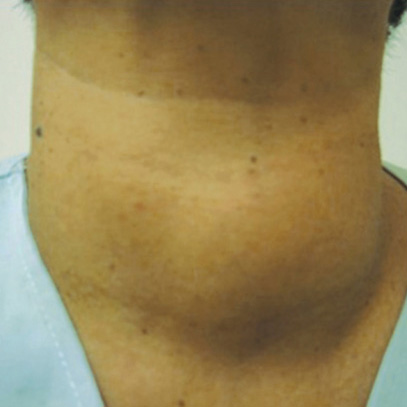
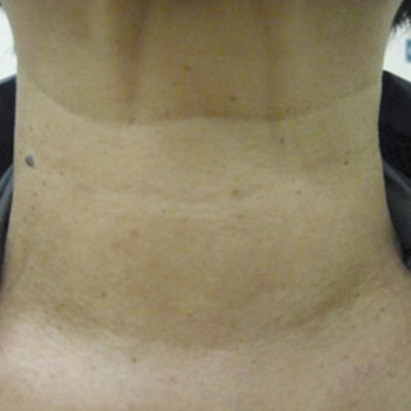
Dr. Elshenawy explaining the radiofrequency ablation procedures at Outpatient Cytopathology Center
What is Thyroid RFA of large thyroid nodules?
What is the cost of radiofrequency ablation treatment?
Why OCC thyroid center?
- Our providers are USA-boarded, MD & ECNU certified. Our three doctors have performed more than 50,000 thyroid interventional procedures including FNA biopsies, ethanol ablation, and RFA.
- Our center has been established since 1991 and is considered a national leader in thyroid diagnosis. We have the newest and the highest quality ultrasound and RFA medical equipment.
- Our center is one of the pioneering thyroid centers in the United States, we offer radiofrequency ablation for benign graves’ nodule treatment that’s performed by our experienced physicians. We only ablate and target your nodule so you can preserve the functions of your gland.THE
- Thyroid RFA technique at our center is safe and FDA approved.
- Our center has a patient’s centered approach as from our experience we know each patient’s health condition is unique. Additionally, RFA procedures at our OCC center are more cost-effective than hospital-based procedures as we have no facility fee charge.
We have a skilled excellent medical staff as well as the newest and the highest quality medical equipment. For more information
Patient's frequently asked questions
How long is the thyroid radiofrequency ablation procedure?
The procedure is approximately 30-45 minutes long. It is done at our center as an office-based procedure under local anesthesia.
What is the follow up after my RFA?
Following your RFA procedure, you will have a clinical evaluation with Dr Elshenawy at 1, 3, 6 and 12 months. She will perform an ultrasound neck scan to evaluate your ablated nodule. She may order a thyroid blood panel to evaluate your thyroid functions if clinically indicated.
Are there any cautions or contraindications for the RFA procedure?
Consult with your physician if you have a pacemaker, any implants, are pregnant, or on any medication(especially for blood thinning).
Will I need a second thyroid radiofrequency ablation treatment?
Most patients can be treated with a single treatment, so additional procedures are not necessary. However, if the nodule is very large, more than one RFA treatment will be recommended. This is to achieve the best outcomes for the patient and prevent future regrowth of the nodule.
When can I resume my normal life after the RFA?
you can go to work or resume your normal activity the next day.
Will I need a thyroid replacement hormone / medicine after RFA?
No, you do not. The majority of the patients who are euthyroid before RFA do not need to initiate any thyroid hormone or medicine following the RFA.
Is RFA painful?
Thyroid RFA is very tolerable and generally painless. Prior to your RFA, a local anesthetic will be injected at the neck and thyroid area. Most of our patients experience mild neck pressure with minimal to no pain. You will be awake and able to talk during the whole procedure.

